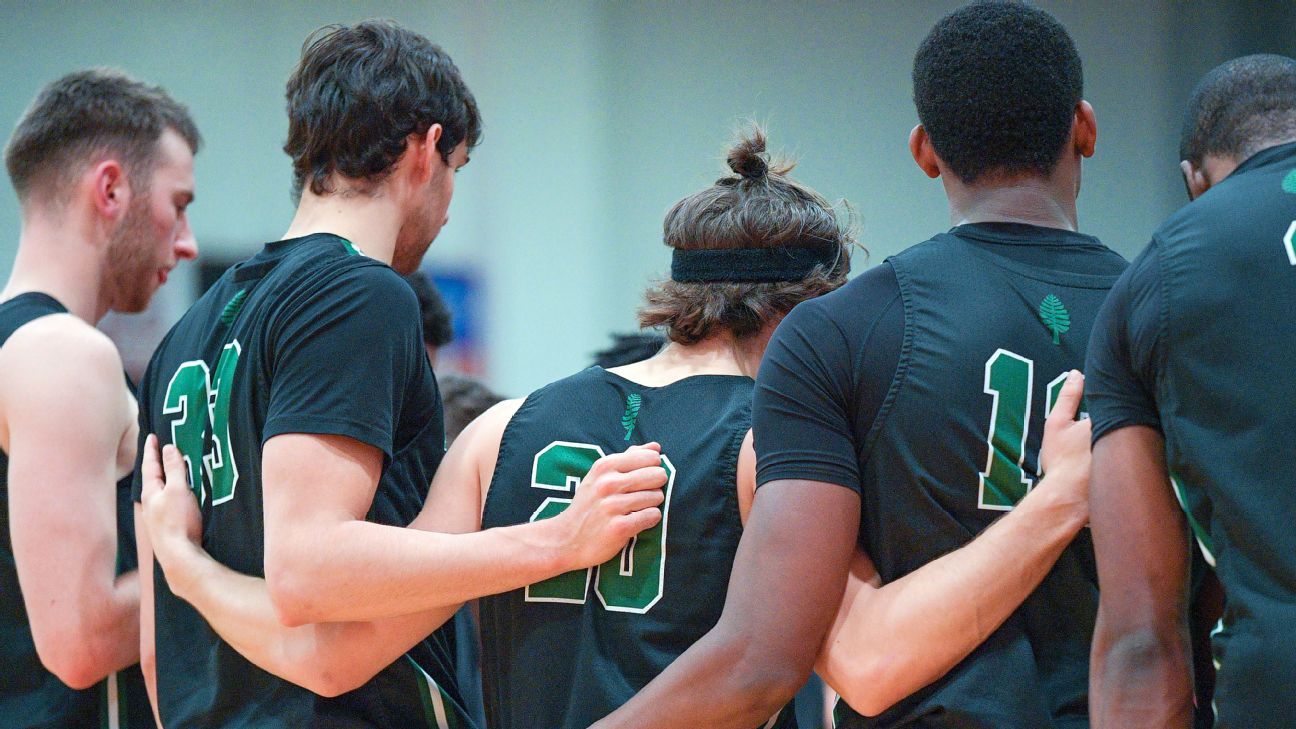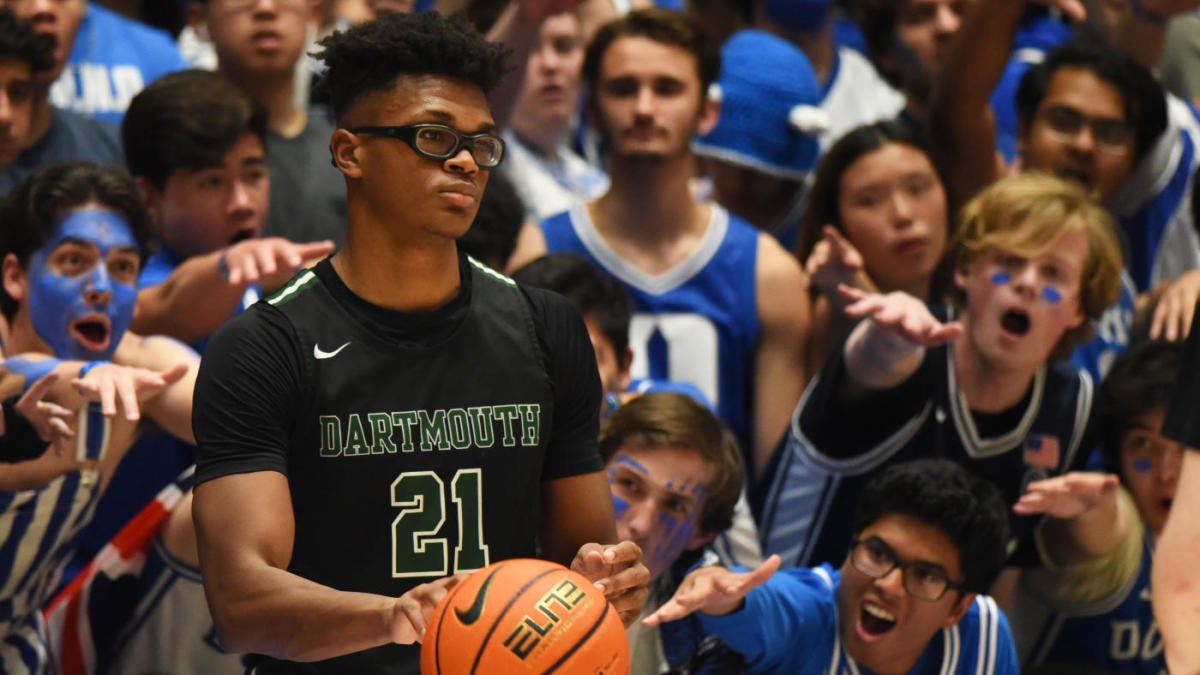
NLRB calls Dartmouth hoops players employees
A National Labor Relations Board regional official has decided that Dartmouth basketball players are employees of the school, clearing the way for an election that would create the first labor union for NCAA athletes.
Associated Press
A National Labor Relations Board regional official ruled on Monday that Dartmouth basketball players are employees of the school, clearing the way for an election that would create the first labor union for NCAA athletes.
All 15 members of the Dartmouth men's basketball team signed a petition in September asking to join Local 560 of the Service Employees International Union, which already represents some other employees at the Ivy League school in Hanover, New Hampshire.
Unionizing would allow the players to negotiate not only over salary but working conditions, including practice hours and travel.
"Because Dartmouth has the right to control the work performed by the Dartmouth men's basketball team, and the players perform that work in exchange for compensation, I find that the petitioned-for basketball players are employees within the meaning of the (National Labor Relations) Act," NLRB Regional Director Laura Sacks wrote.
In a statement, Dartmouth basketball player representatives Cade Haskins and Romeo Myrthil called the ruling "a significant step forward for college athletes," adding, "we are excited to see how this decision will impact college sports nationwide." They also announced plans to form the Ivy League Players Association for basketball players across the league.
"We believe that other athletes will recognize the opportunities this ruling presents and will be inspired to follow suit," the statement said. "This association aims to foster unity, advocate for athletes' rights and well-being, and create a platform for collaborative decision-making. We look forward to working with our fellow Ivy League athletes to bring positive change to the landscape of college sports and the Ivy League."
The NCAA and universities across the country have been steadfast in insisting their athletes are students, not employees. College sports leaders have even lobbied Congress for a federal law that would codify that classification as the NCAA faces a federal lawsuit in Pennsylvania on the subject.
The case is being closely watched, coming at a time when the NCAA's bedrock amateur athlete model is facing multiple challenges in court.
"It's the first step to potential employee status for college athletes," said Gabe Feldman, a sports law professor at Tulane.
The school can still appeal the regional director's decision to the national board, which is what happened when members of the Northwestern football team held a union election in 2014.
In that case, the ballots were impounded pending a ruling. Now, an election can be held and ballots counted while an appeal is pending. The Northwestern ballots were destroyed after the NLRB, which governs only private employers, decided that allowing the football players at the only private school in the Big Ten to unionize would skew the labor market in the conference.
In that case, the NLRB did not address the question of whether the players were employees. All eight Ivy League schools are private and do not grant athletic scholarships. Feldman said that could increase the likelihood the full board will uphold the ruling.
"But on the flip side, if Dartmouth men's basketball players are employees, not only what athletes are not employees, but does this make the music students employees?" Feldman said. "So this may open the door too far?"
There is a complaint before a different NLRB body in California that claims football and basketball players at USC should be deemed employees of the school, the Pac-12 Conference and the NCAA. That hearing resumes this month.
In a 2021 memo, the NLRB's top lawyer said college athletes should be considered employees.
"The freedom to engage in far-reaching and lucrative business enterprises makes players at academic institutions much more similar to professional athletes who are employed by a team to play a sport," NLRB General Counsel Jennifer Abruzzo wrote.
During a four-day hearing in October, Dartmouth argued that the players shouldn't be considered employees because athletics are part of the academic mission of the school, like performing in the orchestra or even playing club sports.
"At Dartmouth, students' primary objective is learning," school attorney Joe McConnell said then. "Dartmouth has adopted policies reflecting that students who participate in intercollegiate athletics are students first and athletes second."
The college also said the men's basketball program loses money. Attorneys for the players countered that the school's numbers leave out important and lucrative revenue streams that the basketball team contributes to. What's more, the players say it's not whether the team turned a profit: What matters is if the program brings in revenue, and also whether coaches have control over the players.
The collegiate sports model based on amateurism is facing numerous legal and political threats, in addition to the NLRB ruling. The NCAA is facing at least six antitrust lawsuits, including one brought last week by attorneys general from Tennessee and Virginia that challenges how recruits can be compensated for name, image and likeness.
The model has been crumbling, most significantly after a 2021 Supreme Court ruling that opened college sports up to additional -- though still limited -- kinds of pay. In response, the NCAA loosened rules to permit players to profit from their celebrity.
"I think they're all different sides to a similar threat," Feldman said. "And the threat is the loss of control over the ability to restrict compensation to athletes. And we are closer than we've ever been to a system where college athletes not only receive significant additional compensation, but also have a vote in how much compensation they receive."
Major League Baseball Players Association executive director Tony Clark said in a statement that the ruling shows "college athletes are employees, entitled to basic rights and fair compensation for their labor that has created a multibillion-dollar industry."
"Today's landmark NLRB ruling will improve the lives of all college athletes for generations to come," Clark's statement said. "In the history of the sports labor movement, change has always been initiated by the courageous efforts of Players who decided to stand up and demand their fair share."

